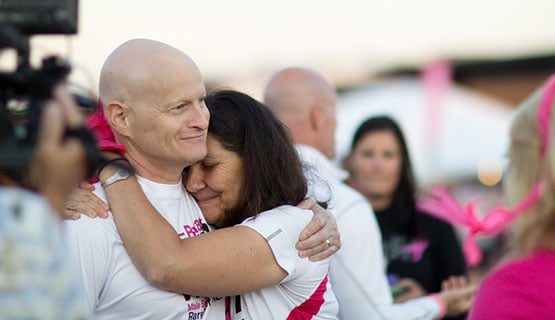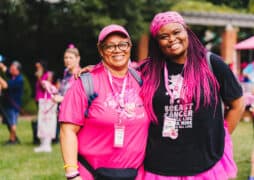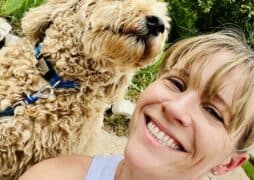Breast cancer came knocking on our door in 2005. It didn’t come looking for me, a woman, the likeliest victim. It came for my husband, Lee Giller. We had known that men could get breast cancer, yet it never occurred to us that the lump Lee felt was anything more than a cyst. At the young age of 48, the love of my life was diagnosed with Stage II breast cancer.

Just after Lee finished treatments for his initial diagnosis, and to help increase awareness about breast cancer in men, we walked 60 miles in our first Susan G. Komen 3-Day®. The connections we made were so powerful that we walked another 60 miles that same year. We continued walking every year after that while listening to people from all backgrounds of life share their stories of survival, courage and sadly, defeat; and we shared ours. Some had not known men could even get breast cancer. So, we began to find our voice and purpose, and Susan G. Komen listened.
Lee allowed himself to become a face of male breast cancer – most often in places inundated with women. He never felt shame or embarrassment at what so many still think of as a woman’s disease. The way he faced his illness was inspirational – never a complaint or self-pity. Lee was brave, kind, generous, and he was taken much too soon. On April 28, 2017, my husband and best friend passed away from breast cancer at age 59. Lee fought valiantly for nearly 12 years, four of them with metastatic disease.
Breast cancer has influenced every corner of our lives. We believe that Lee’s cancer diagnosis saved our daughter, who learned through genetic testing that she inherited his BRCA gene mutation. At just 28 years of age, she was diagnosed with breast cancer, but thankfully due to knowing her risk, it was caught early. This disease has shown us what a hero is from a man who would grimace at being described as such. It has taught us to truly value every day and not take those we love for granted. Sadly, we have learned how fleeting time can be.
– Kathy Giller
Male Breast Cancer Facts
Since men typically don’t think of themselves as having breasts and are often surprised to know they can get breast cancer, education is critical. Men are also less likely than women to recognize changes in their chests at all or realize those changes are significant and report symptoms. These delays may play a factor as to why men are sometimes diagnosed at a later stage of breast cancer than women. For men the U.S., it is estimated that in 2022 there will be:
- 2,710 new cases of invasive breast cancer (includes new cases of primary breast cancer, but not recurrences of original breast cancers)
- 530 breast cancer deaths
Male Breast Cancer Resources:



